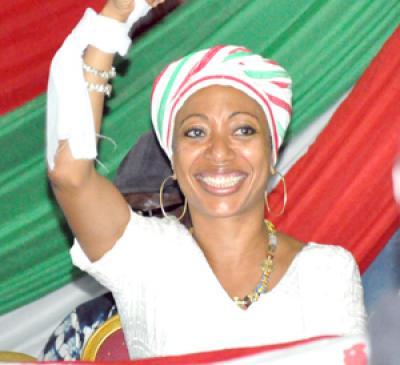Sudan/ICC: Enough Said
I rarely use this blog to give a platform for ‘Enough’ but on this occasion I thought it right to give some prominence to the creative writings of the campaign’s leadership.
In a report published a month ago, ‘Enough’ speculated about what the ICC arrest warrant for President Bashir might mean. It put its hope for an opening for peace and increased international leverage in what it discerned as “a growing fissure between Bashir’s loyalists and potentially more pragmatic elements of the NCP [that] could lead to the president’s removal.” In plain language: a coup.
‘Enough’ clearly favored the combination of Vice President Ali Osman Taha and intelligence chief Salah Abdalla Gosh as the leaders of their proposed coup, arguing that they “have shown willingness to work with the international community. Taha was the NCP’s point person in negotiating the CPA, and Gosh has become the United States’ favored interlocutor on counterterrorism. Within a ruling party increasingly focused on its own survival, Bashir may become a sacrificial lamb for a party in search of more pragmatic leadership.”
A few days later, Salah Gosh spoke for himself, “Our message to those who stand behind the ICC is that we were Islamic fundamentalists but have become moderate and civilized and this continues to be our conviction. If they press us to return to our past position, we will no doubt return. And if they want us to return into hard-liners anew, that is a simple thing to do. And we are capable of doing it.” (AP, ‘Sudan official warns over indicting president,’ February 21, 2009). He went on to say, that Sudan would protect civilians and the staff of international organizations as long as they do not stray beyond roles defined in agreements with Sudan’s government, “But whoever contradicts this or tries to trespass the marked boundaries, they have only themselves to blame.”
When the arrest warrant was issued, John Prendergast said it made “Sudan’s prospects for peace riper than they have been in memory.”
Enough said?






In the enough article it says the following
“Sudan’s ruling NCP has faced substantial pressures both from within and without in anticipation of the warrant against Bashir. Internally, Bashir and his loyalists face growing opposition from a group led by Sudan’s Second Vice President Ali Osman Taha, its intelligence chief Salah Abdullah Gosh, and its energy minister Dr. Awad al-Jaz. Tensions between the two camps have been mounting for months, and Gosh blames Bashir and his senior advisor Nafie Ali Nafie for Sudan’s increasing international isolation. ”
FYI
Bashir and Nafie belong to the Jallein tribe of North Sudan, not from Khartoum, which is in the Center of the country. A city that was inhabited by the Mahas and built by the Egyptian Turkish occupation in 1820.
The opposing group according to Enough, belongs to the Shaiqia who from the times of the Turkish Egyptian invasion in 1820 were less aggressive to foreigners in comparison to the Jallein and many Shaiqia joined the Turkish Egyptian Army and were its best soldeirs.
Jallein and Shaiqia are cousins and both claim that their ancestor is the uncle of the prophet Mohamad, Abbas. But have many internal feuds and competition between them. They represent between 7-10% of Sudan’s population of 40 millions, they had mixed racially extensively with Nubians of the Sudan, after all it was few Arabs intermixing with thousands of Nubians of North Sudan to make those tribes.
There is many such Arab tribes in the Sudan which represent 40% of the Sudan. 60% of Sudanese speak Arabic as their mother tongue.
John Prendergast actually (camped )in Abuja and campaigned against the proposed peace deal . He is one of those who advised JEM and Abdul Wahid Nour NOT to sign . We Know that he had opposed the 05 Comprehensive Peace Agreememnt too.
The NGOs which he represented are neither democratic nor accountable .Let us consider the results of his advice against accepting the Abuja Peace deal in 06: More fighting and the break up of the two main movements (JEM and SLA) into tens of competing groups.Tens of thousands have also been displaced .Predergast cannot claim that he cares cfor Darfur and Sudan.What we say to him is one word ENOUGH! stop meddling and acting against the stability of Sudan.
Another factor which is often confused is the detribalisation of the central Sudan (compared to the ethnic unity which was left intact in Darfur by georaphy and unbalanced development). Ethnic considerations have no place in the cities of central Sudan ;which have acted as melting pots bringing together people from all over the country ;including Darfur. That is why the political parties; trade unions and sport/social clubs were formed in cebntral Sudan on a National not sectarian or ethnic/tribal basis since the 1940s.
The mind -set of some Darfuri leaders is stuck in the past; they find it very difficult to imagine that others are not tribally motivated. Last year JEM fought in Chad to save the regime of I. Debi then crossed the border to Sudan in pursuit of the same ethnic goal.
In this sense; the conflict in Sudan is between the past and the presnt/future.
Between the detribalised vanguard and the reactionary ethnic interpretation of politics .